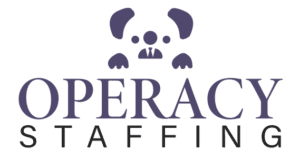
The world of consulting has evolved dramatically over the past decade, giving professionals more flexibility in how and where they work. While traditional consulting has long been associated with in-person meetings, on-site visits, and corporate offices, remote opportunities are now reshaping the industry. Today, many professionals are providing expert advice from the comfort of their homes or co-working spaces, offering services to clients across different locations. But is working remotely the right choice for everyone, or does traditional consulting still have the upper hand? This article explores the key differences between these two career paths and helps you decide which one suits your professional and lifestyle goals in the era of remote consulting jobs.
In this model, consultants are often expected to work long hours, attend meetings in person, and manage multiple clients simultaneously. While this approach provides direct engagement and builds credibility, it also comes with the challenge of rigid schedules, frequent travel, and workplace dynamics that may not suit everyone. Professionals who thrive in team environments and enjoy face-to-face interactions often find this structure more rewarding.
The Rise of Remote Consulting Jobs
For professionals based in Australia, virtual roles have opened up new career opportunities. Many businesses now prefer remote consultants for their expertise without the added costs of in-house hiring. Whether it's business strategy, marketing, or financial consulting, the ability to provide high-quality advice online is proving to be a game-changer. However, remote professionals must be self-disciplined, tech-savvy, and capable of building trust without in-person interactions. Strong communication skills, time management, and adaptability are essential to thrive in this space.
Comparing Work-Life Balance
Remote consulting jobs, on the other hand, offer greater flexibility. Professionals can choose their work hours, set their own pace, and work from anywhere with a stable internet connection. This setup is particularly beneficial for those who prefer autonomy and value personal time alongside career growth. However, working from home also comes with its own challenges, such as maintaining motivation, managing distractions, and ensuring clear boundaries between work and personal life.
Client Relationships and Networking
For remote professionals, networking and client engagement happen primarily through digital platforms. Video calls, emails, and online collaboration tools replace face-to-face meetings. While this approach offers convenience and efficiency, it may require extra effort to build credibility and maintain long-term client relationships. Those who excel at digital communication and personal branding often find success in this space.
Earning Potential and Career Growth
Remote professionals, however, have the advantage of setting their own rates, working with multiple clients, and expanding their services beyond local markets. This model provides more control over income but also requires consistent effort in securing projects and maintaining client relationships. Roles such as virtual assistant jobs Australia have gained popularity, allowing professionals to offer specialised services to businesses while enjoying flexible work arrangements. Those who successfully market their expertise can achieve financial success comparable to, or even exceeding, traditional consultants.
With businesses increasingly embracing remote work, professionals in Australia are exploring alternative career paths. Becoming a virtual assistant Australia-based professional, for example, allows individuals to offer specialised services to businesses worldwide while maintaining work-life balance. As the consulting landscape continues to evolve, both traditional and remote opportunities remain viable career options, each catering to different professional needs.
